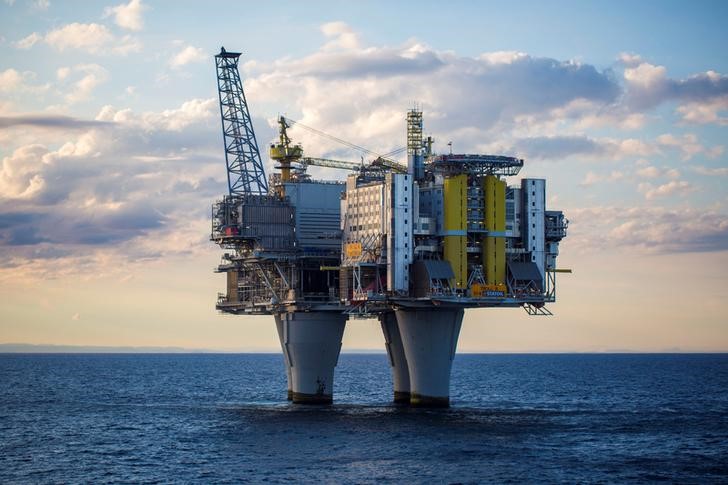Investing.com - The oil market's fear of the Russians seems greater than its fear of Donald Trump's tweets.
U.S. West Texas Intermediate crude did break below the $50 per barrel support on Thursday as anticipated, reaching new 13-month lows.
But within hours it was back up on talk that the Russians might contribute after all to an oil production cut at the enlarged OPEC+ meeting on Dec. 6. Moscow had been dragging its feet for weeks earlier over Saudi urgings that there must be output reductions to prop up the market.
U.S. WTI settled up $1.16, or 2.3%, at $51.45 per barrel. It sunk earlier to $49.41, the lowest since Oct 2017.
U.K. Brent, the global benchmark for oil, was up 78 cents, or 1.3%, at $60.70 per barrel by 3:11 PM ET (20:11 GMT). Earlier in the session, it fell to $57.78, its lowest since July 2017.
Oil prices rebounded after a report by Reuters, citing sources, that the Russian Energy Ministry had met with the country’s domestic crude producers and reached a consensus that an output reduction was necessary. Parties were analyzing the size and timing of cuts, the report added.
Both WTI and Brent have lost about a third of their value in a little less than two months after President Donald Trump's tamer-than-expected sanctions against Iranian oil exports, which, along with record U.S., Saudi and Russian output, have flooded the market with supply.
Equally damaging to the psyche of the market have been tweets from the president that the Saudis should not cut output, a directive traders had expected Riyadh to comply with, given its potential exposure to U.S. sanctions after the murder of journalist Jamal Khashoggi.
"Despite the drama, the cartel will have to cut," Phil Flynn, energy analyst at Chicago's Price Futures Group, said, referring to OPEC.
"It’s clear that the Russians just wanted to watch the Saudis squirm a bit. We should have confirmation of some kind of a cut this weekend," added Flynn, referring to the G20 meeting between Friday and Saturday, which Saudi Energy Minister Khalid al-Falih and his Russian counterpart Alexander Novak will be attending. Traders expect the two energy market superpowers to use the G20 to hatch an outline for the cuts planned at the enlarged OPEC+ meeting.
Al-Falih said on Wednesday that while an output cut was an absolute must to save crude prices from sinking further, Riyadh had no plans to sacrifice its market share unless other major producers in and out of OPEC contributed to the reductions. The minister's remarks came as Russia appeared still hesitant to the plan and OPEC member Nigeria balked as well.
